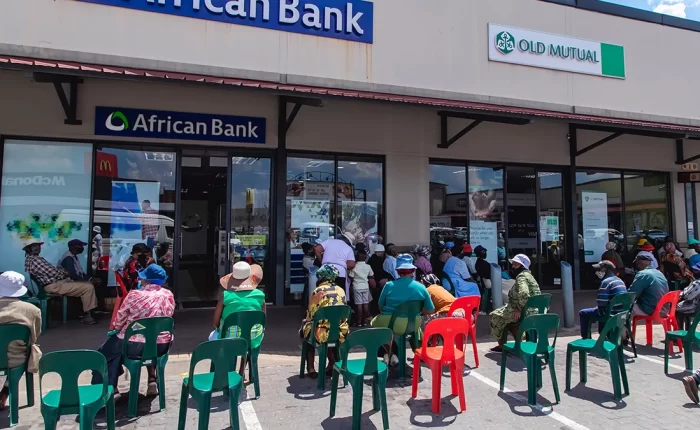Jobs lacking at South Africa and causing anxiety to South African communities

Hundreds of South Africans gathered at a job fair in Durban’s Umlazi township, holding their CVs and school certificates, hoping for an opportunity to break into the job market. The queues were long, and many appeared nervous and anxious about their prospects. While the political landscape in the country is filled with tension ahead of the May 29 general election, this event sheds light on one of the major concerns of ordinary citizens – the country’s dire unemployment situation.
With unemployment in South Africa at a staggering 33%, and an even higher rate of 46% among young people, it’s no wonder that the upcoming election has failed to excite many. Mondli Magwaza, aged 37, who has never been employed, expressed his desperation and stated that he would not be voting for the ruling African National Congress (ANC) this time. Zara, a 44-year-old who was recently retrenched, also expressed her disappointment with the ANC, a party she had always supported. The economic hardship faced by citizens is likely contributing to the ANC’s declining popularity, with some polls indicating its share of the vote may drop below 50% for the first time since the end of apartheid.
In an effort to improve their employment prospects, young South Africans are actively seeking out training and skill development. Britney Finnis, a 23-year-old student at the St Charles Lwanga Skills Centre in Orange Farm, is learning to become an electrician. She believes that acquiring these technical skills will improve her job prospects, and ultimately, she hopes to start her own business. Similarly, Rita Mida, a 34-year-old housewife turned aspiring seamstress, is determined to launch her own business despite the challenges she might face in finding resources.
These skills centers, like the one in Orange Farm, are part of a national network of vocational training facilities that aim to address the skills gap in the South African workforce. Nathan Johnstone, who oversees the national program, noted that approximately 30% of those who complete the courses are employed within a year. While this may seem low, it is considered a success in the current economic climate. Employment Minister Thulas Nxesi acknowledges that structural issues, particularly those tied to education and skills development, are significant factors contributing to the high unemployment rates.
The legacy of apartheid, which entrenched vast economic disparities and inequalities in education, continues to affect South Africa’s economic landscape. President Cyril Ramaphosa recently remarked that the scars from apartheid would take a long time to heal, emphasizing the generational transmission of inequality. The country’s economy, once heavily reliant on mining, has struggled to diversify, and the lack of alignment between education systems and labor market needs remains a persistent issue.
A 2019 World Bank report highlighted the shortage of work-ready skills as a key barrier to South Africa’s economic progress. Adrian Saville, an economics professor at the Gordon Institute of Business Science, stressed that many individuals entering the workforce lack the necessary skills and workplace readiness. Despite efforts by the government to organize job fairs and training programs, the private sector’s capacity to absorb the large number of unemployed individuals remains in question. Nxesi admits that economic growth and investment are necessary to reduce unemployment, and this is where the country is facing its most significant challenge.
The lack of investment to stimulate economic growth is seen as a critical issue by experts. The growth that has occurred so far has largely been driven by government and consumer spending, which are not sustainable sources of job creation. Power shortages have also severely impacted businesses, adding to the country’s economic struggles. The COVID-19 pandemic further worsened the situation, leading to the loss of two million jobs, according to Nxesi.
The ANC’s main political rivals, the Democratic Alliance (DA) and the Economic Freedom Fighters (EFF), have presented their own proposals for addressing unemployment. The DA focuses on transforming South Africa into an enterprise-driven economy, citing the Western Cape’s lower unemployment rate as an example. On the other hand, the EFF advocates for nationalization and promises to provide unemployed graduates with a monthly stipend. While there is broad recognition across the political spectrum of the urgent need to tackle unemployment, the ANC remains under fire for its handling of the issue, and the alternative solutions presented by other parties remain largely untested.
At the job fair in Durban, some people are still loyal to the ANC, citing a lack of better alternatives, but the general sentiment is one of disappointment. One attendee, who wished to remain anonymous, expressed the feeling that “the government has failed us,” and that the situation is “very painful.”